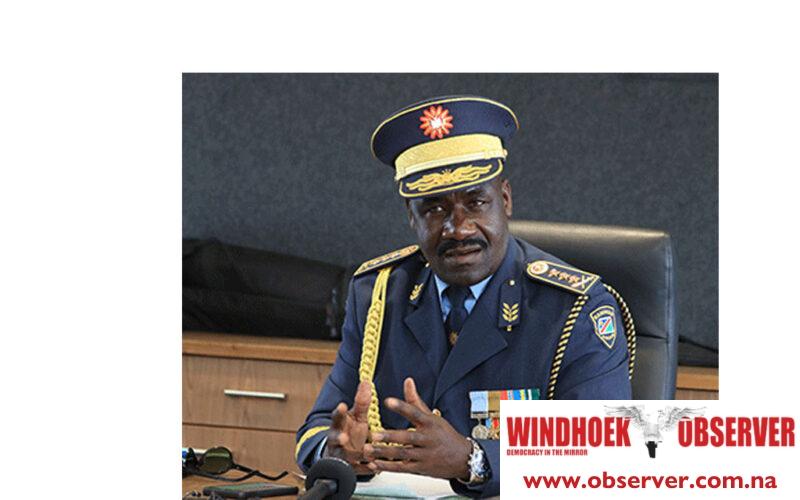Niël Terblanché
A new Memorandum of Agreement (MoA) has been signed between the Namibian Police and the Namibian Ports Authority (NamPort), marking a crucial step in augmenting Namibia’s technical capacity to combat transnational organized crime.
This development, embraced by both entities, promises quick and direct access to INTERPOL databases allowing for criminal data search and cross-checking in mere seconds.
The Inspector General of the Namibian Police, Lieutenant General Joseph Shikongo and Andrew Kanime, the Chief Executive Officer of NamPort signed the mutual accord during a special ceremony in Walvis Bay earlier this week.
The MoA is aimed at strengthening cooperation with vital stakeholders in the relentless battle against organized crime.
Shikongo lauded this initiative as a “commendable” venture aiming at significant enhancement of collaborative efforts to thwart transnational organized crimes (TOCs).
“I extend sincere gratitude to NamPort’s management for their commitment to support the Namibian Police in this crucial endeavour,” Shikongo said.
He emphasized that such collaborative efforts are imperative to mitigate the risk of Namibia being grey-listed by the Eastern and Southern African Anti-Money Laundering Group and the Financial Action Task Force (FATF).
He indicated that Namibia, having solidified its membership with INTERPOL in November 1992, is a crucial participant in global efforts to maintain peace, security, and stability.
According to the General, the newly signed MoA aligns with Namibia’s ongoing commitment to address pervasive threats arising from terrorism, illicit financial flows, human and drug trafficking, and the proliferation of illicit arms, especially in the SADC region.
The I-24/7 system, or INTERPOL Secured Global Communication System, is a groundbreaking network that seamlessly connects law enforcement across its 195 member countries.
“This system enables authorized users to exchange sensitive and critical police information globally, thus fostering international cooperation and swift response to emerging threats.
It is through the strategic expansion of the I-24/7 system that relevant stakeholders can mutually access INTERPOL criminal databases, sharing sensitive and urgent information required globally,” he added.
Shikongo added. The INTERPOL National Central Bureau (NCB) Windhoek is currently orchestrating the expansion of the I-24/7 System to include relevant stakeholders like NamPort, aimed at precluding crimes and augmenting security within the nation.
He made it clear that the implementation of this MoA does not delegate NAMPOL’s powers or mandate to NamPort. The collaboration will, however, see NamPort continuing its support by providing necessary documents and witness statements to register cases while maintaining the confidentiality and privileged status of the exchanged information.
The implementation of this MoA and the concerted efforts to expand the I-24/7 system is timely, reflecting Namibia’s leadership role in INTERPOL and its continuous support to different NCBs through its Financial Crime and Anti-Corruption Centre.
Shikongo reiterated the importance of maximizing the benefits derived from INTERPOL’s Policing and Technical Capabilities and urged both entities to explore further areas of cooperation to ensure strict adherence to the MOA’s terms and conditions.
The General was of the opinion that the newly-forged alliance is a testament to Namibia’s unwavering commitment to uphold peace, security, and justice, not only within its borders but also on a global scale, by curbing the menace of transnational organized crimes.
Andrew Kanime, the Chief Executive Officer of NamPort, reinforced the importance of this collaboration, addressing the myriad of challenges and responsibilities faced by the port authority.
He welcomed the newly strengthened alliance with the Namibian Police with enthusiasm, acknowledging the tangible benefits it brings in preventing transnational organized crime.




